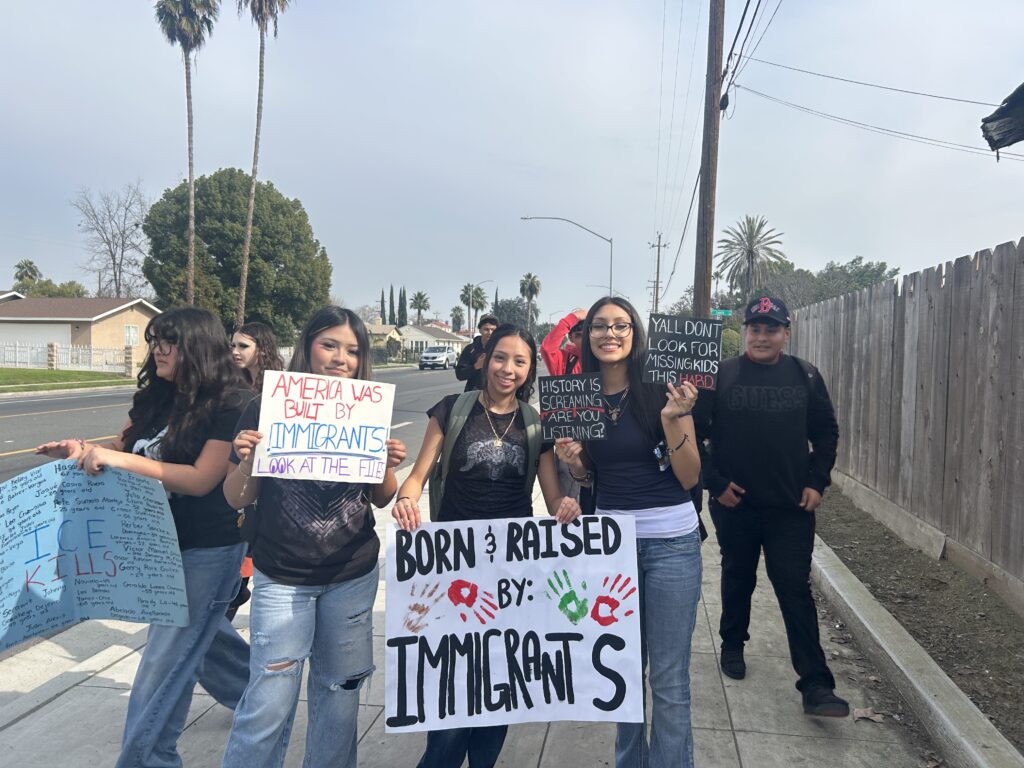
- Fresno State notched its 15th consecutive year of providing more than 1 million hours of service to the community.
- During the last academic year, 198 service-learning courses — an increase of 14% — were offered.
- Service-learning allows students to learn through action.
Share
|
Getting your Trinity Audio player ready...
|
Dr. Matthew Jendian was given a task nearly 30 years ago to incorporate service-learning into his sociology courses at Fresno State.
Sure, why not, the new adjunct professor thought at the time. After he taught his first service-learning class, he noticed a change in his students — they were even more engaged and experiencing deeper learning.
Service-learning is a high-impact practice that allows students to learn through action. It can be as simple as serving at a homeless shelter or packing grocery bags for low-income families, or it can be learning how to research, write grants and implement full-scale projects that have an impact in the community, Jendian said.
“By having service-learning and internship experiences, we ensure our students are gaining experience that aligns with their academic preparation,” Jendian said. “So, they’re really able to apply what they’re learning in the classroom to what’s going on in their community.”
During the 2023-24 academic year, 198 service-learning courses — an increase of 14% from the previous year — were offered across 33 departments at Fresno State. More than 4,200 students enrolled in those courses and helped elevate the university to its 15th consecutive year of providing over 1 million hours of service to the community.

“We’ve known about the value of experiential learning since the beginning of humanity. It’s how human beings learn. You learn by doing.” — Dr. Matthew Jendian, Fresno State professor
The annual Service Impact on the Community Report by the Jan and Bud Richter Center for Community Engagement and Service-Learning at Fresno State shows that faculty, students and staff completed a total of 1.44 million hours of service which is estimated to have an economic impact of $57.2 million. The 2023 value of an hour of volunteer time in California was $38.61 based on calculations from the Independent Sector, a national nonpartisan network of nonprofit and philanthropic organizations and professionals.
“Last year we had more service-learning courses than ever,” said Chris Fiorentino, director of the Richter Center. “This is thanks to dozens of dedicated faculty members who contribute the extra time needed to develop and teach these courses.”
Wide Range of Services Options
The campus community provided a range of service from tutoring and mentorship to Alternative Spring Break, blood drives, community revitalization, and projects led by groups such as the Craig School Scholars, the Maddy Institute, physical therapy students, and those pursuing teaching credentials.
The Richter Center supports faculty with training and course materials to incorporate service-learning into their curriculum.
This summer, Jendian taught Sociology 130WS, or Contemporary Social Issues, the same class in which he first implemented service-learning practices many years ago. The course requires students to complete 15-20 hours of service directly related to the course material.
“We’ve known about the value of experiential learning since the beginning of humanity. It’s how human beings learn. You learn by doing,” Jendian said. “It can’t just be about telling people what to do or showing them what to do. They have to actually do it.”
RELATED TOPICS:
Categories

Teen Arrested at Visalia Mall After Firearm Report

Tumblr Goes Down for Thousands, Downdetector Reports
















